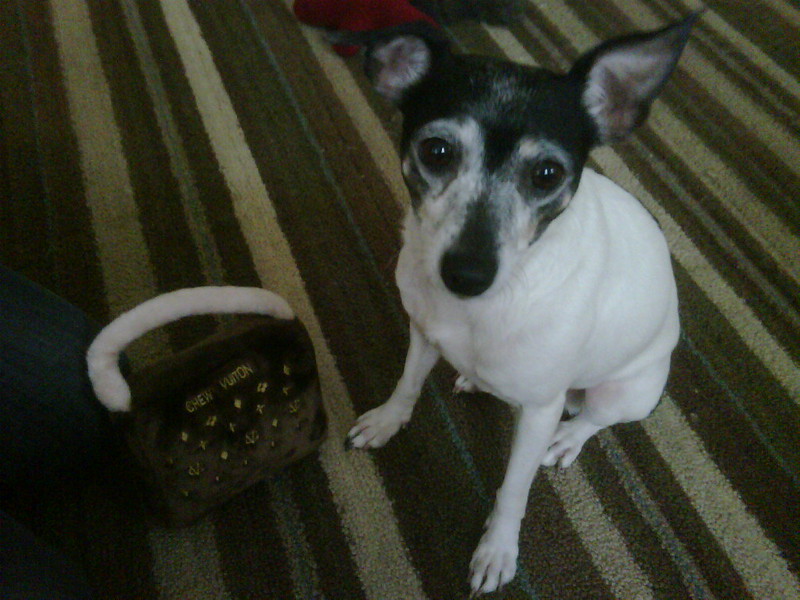Dumb Starbucks or Smart Starbucks? Brewing Up Effective Parodies
Years before I started law school, I enjoyed indulging in the work of a comedian named Nathan Fielder, a master of absurdist comedy. Never did I realize this would be one of my first encounters with the many principles of trademark law. On his show, Nathan for You, he acts as a “consultant” helping real people with their real businesses. However, Nathan’s version of “help” only included absurd and unrealistic ideas, such as the concept of “Dumb Starbucks.”
Dumb Starbucks – More than Comedy Genius
In this episode, Nathan helps a coffee shop to turn around their business through a unique marketing plan. The coffee shop rebrands as “Dumb Starbucks” – and it quite literally copies everything you know and love about Starbucks, down to the mermaid logo. The only thing different about the store? They slapped the word “Dumb” at the front of the Starbucks logo.

Not only did the word “dumb” precede Starbucks, but it also preceded every single menu item and every item on sale at the store – from “dumb espresso” to “dumb tea.” In addition, the coffee was all free – which would never happen at a real Starbucks. When I watched this episode, I thought it was hilarious. But on second thought, I wondered how they could have gotten away with this. Clearly, the logo and store look identical to a Starbucks location. Wouldn’t Starbucks have some legal rights against Nathan and the business featured in his show? I didn’t have an answer to this question until I started learning about trademarks this year. “Dumb Starbucks” is a parody!
Trademarks and Parody
After we learned about parody in class, I immediately started googling this topic to see if there was an actual lawsuit. It turns out that Starbucks never sued. It got me thinking, is “Dumb Starbucks” an effective parody? And how far can parody go to protect potential trademark infringers from liability?
A trademark is a source identifier. It can take the form of a word, phrase, symbol, or device and is used to distinguish your goods from others. A person or company can hold several trademarks at one time. For example, the word “Starbucks” and the stylized logo including the mermaid are both trademarks.
A trademark owner may bring an infringement claim against the owner of a similar mark being used on goods or services in commerce which might cause a likelihood of confusion among consumers. Likelihood of confusion can be confusion as to the source of the goods or services or sponsorship/affiliation of the goods or services. Confusion regarding the source of goods or services means consumers think the product is coming from the trademark holder when it is not. For example, there would be confusion as to source of goods if consumers thought Dumb Starbucks was in fact a real Starbucks. On the other hand, confusion regarding sponsorship or affiliation means although consumers realize the product is not coming from the trademark holder, they might think the trademark holder is sponsoring it in some way. Courts analyze several different factors when determining if there is likelihood of confusion, such as the strength of the plaintiff’s mark, whether the goods or services are related, how similar the marks are, and the similarity of the marketing channels. These factors serve as a guide for courts and not every factor needs to be met for the court to find a mark to infringe. This is commonly referred to as a a totality of the circumstances test.
However, holders of famous, nationally recognized trademarks, can also bring a federal dilution charge against the owner of the similar mark even if there is little to no likelihood of confusion. Instead, the existence of the similar mark might dilute the power of the famous mark in two ways. It could blur the strength of the famous mark or tarnish the mark by associating it with something immoral or of shoddy quality.
A parody is a creative and satirical work that is intended to imitate, mock, or make fun of something else using same or similar form. In trademark law, an effective parody can help a defendant who has been sued for infringement or federal dilution avoid liability.
What is an Effective Parody?
An effective parody must simultaneously seem like it is the original mark and make it clear it’s not the original. This is often done by mocking or making light of the original mark.
An example of an effective parody is Chewy Vuitton. A company called Haute Diggity Dog began making dog toys that looked like Louis Vuitton bags.

When you look at the bag, it does what an effective parody is supposed to do: remind you of the original while at the same time reminding you that it is not the original. The look of the dog toy and the name “Chewy Vuitton” immediately call to mind the luxury handbag brand. But at the same time, you immediately recognize that it is not a luxury handbag brand, but a dog toy.
An effective parody doesn’t automatically save a defendant from liability – but can help significantly when applying the confusion factors. An effective parody typically shows that a consumer is not likely to become confused, because an effective parody notifies you that it is different from the original mark. In addition, the parody may even strengthen a famous mark rather than weakening it, because it reminds you of the original.
Does “Dumb Starbucks” Pass the Parody Test?
Applying the test from above, “Dumb Starbucks” is an effective parody. It makes you think of the Starbucks mark because the parody logo is practically identical. The store is also set up in the same fashion. But at the same time, you know the logo is not the original, because of the word “dumb” in front of the store name and every single product in the store. Plus, the coffee was all free. The business featured in Nathan For You was clearly a joke, but can it really be that simple to avoid trademark liability?
Well, parody only helps a defendant avoid liability by reducing likelihood of confusion. It is not a complete defense to infringement. So, if Starbucks did sue Nathan Fielder, “Dumb Starbucks” would still need to pass a likelihood of confusion analysis.
Starbucks chose not to litigate. The only interaction between Starbucks and “Dumb Starbucks” in this case was Starbucks’ public statement that they appreciated the humor, but Nathan couldn’t use their name. Eventually, after a short time, Nathan had to shut down the “Dumb Starbucks” business. It was not shut down for anything related to trademarks, but because he was operating the business without a license.
Was Starbucks smart not to litigate?
If Starbucks did sue Nathan, a court would balance several factors in determining the likelihood of confusion, even after determining “Dumb Starbucks” was an effective parody. Here, the marks are clearly very similar – in fact, if you remove the word “dumb” the marks are identical. Starbuck’s logo is also a very strong trademark. Not only is the logo creative and distinct, but since Starbucks is a national chain, there is market strength that makes the logo identifiable by society at large. Both “Dumb Starbucks” and real Starbucks also provide the same goods and services since they are both fully operational coffee shops. But that is where the similarities stop.
For example, “Dumb Starbucks” provided coffee free of charge. The store also put the word “dumb” in front of every product. This shows a significant difference in products and manner of marketing than real Starbucks. This is a confusion factor weighing in favor of no confusion.
Another confusion factor weighing in favor of “Dumb Starbucks” is the intent of the defendant. Nathan Fielder is a comedian who filmed a TV Show about consulting small businesses on absurd business ideas. Since “Dumb Starbucks” was a plot of an episode, the intent of the defendant was comedy. He did not try to benefit from the reputation of real Starbucks, he just wanted to get a laugh.
Finally, and most importantly, there was no actual confusion! Everyone who visited “Dumb Starbucks” knew it wasn’t an actual Starbucks. Plus, the store posted a frequently asked questions sign that explicitly said it was not a “real” Starbucks and not associated with the company. When there is actual proof of no confusion, like in this case, it is hard to find for infringement.
How far does parody go?
I think Starbucks was smart not to litigate this case. The fact that no one was actually confused and knew it was all for the plot of a TV show, makes a strong case for Nathan. But this does get me thinking – how far does parody in trademark law go? Would someone else, who wasn’t a comedian filming a TV show, have gotten away with such a simple heist so easily?
Well, one of the biggest factors weighing in Nathan’s favor was that no one was confused. There were many reasons why people wouldn’t be confused, but the strongest reason might be because Nathan Fielder created it, and people knew that. So, if someone who wasn’t a famous comedian filming a TV show created “Dumb Starbucks” I think it might be more likely they would have liability.
Take for example, someone opens their own coffee shop with the “Dumb Starbucks” logo. They sell their own coffee (and charge people money unlike Nathan), and they are not associated with any form of comedy. Would consumers be confused? Maybe. Although it would seem unlikely that Starbucks would sponsor something that used the word “dumb” in front of every product, it wouldn’t be as clear. If it were me, I would wonder how someone could sell coffee at a café that looks identical to Starbucks without any sort of permission. The line here has become much more blurred.
Although on its face, “Dumb Starbucks” seemed to be the perfect crime – there was more involved in the parody than the simple play on words. I think that without Nathan’s TV show being the bedrock for “Dumb Starbucks,” Starbucks might have thought it was worth the trouble to litigate. Starbucks would likely have a better case for infringement if an actual café had been capitalizing on its name, even if they attempted to use parody as a partial defense.

Elizabeth Schrieber
Associate Blogger
Loyola University of Chicago Class of 2025